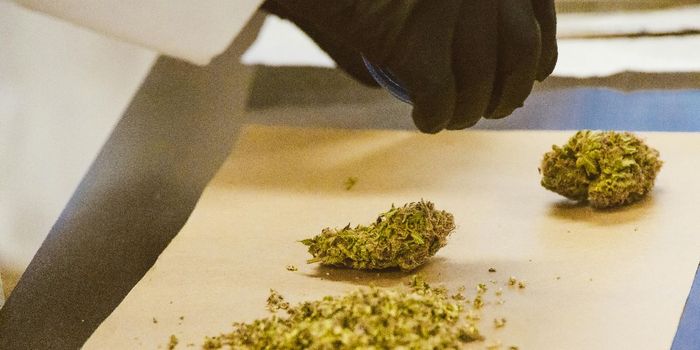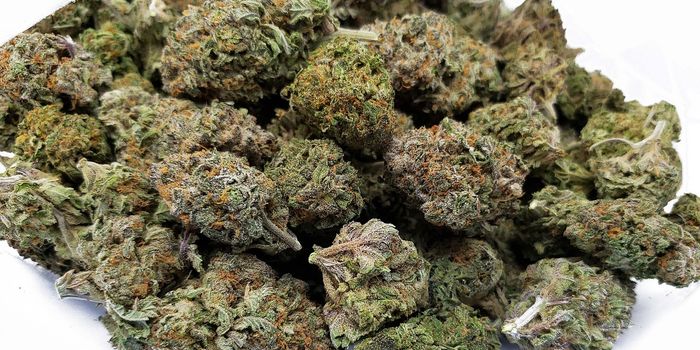Scientists Doubt That Cannabis Actually Helps with Anxiety & Depression
Between CBD, THC, hemp, and marijuana, cannabis is king when it comes to popular health trends on the internet and in the marketplace right now. Cannabis products are often pitched to consumers as magic bullets for all things wellness, but mental health is typically a particularly important part of the pitch.
Despite CBD’s fuzzy legality status, cannabis products focusing on cannabinoids like CBD often claim to support mental health, specifically issues like depression and anxiety. However, a new meta-analysis of 83 different studies shows that the research doesn’t quite support these claims.
Studies from the new review date back to the 1980s. Researchers looked for any study that investigated the impact of cannabinoids found in cannabis on depression, anxiety, Tourette syndrome, attention deficit hyperactivity disorder (ADHD), post-traumatic stress disorder (PTSD), and psychosis, with the majority of studies being involved in investigating links between cannabis and depression and anxiety.
The bottom line? There was not enough evidence to say explicitly that cannabis could effectively treat any of the investigated mental health conditions. Researchers saw some positive correlations between cannabinoids and anxiety, specific PTSD symptoms, and psychosis, but it’s likely that these correlations are not direct links between cannabis and mental health. The links are more likely due to a fundamental, physiological interaction between cannabinoids and the human body’s underlying endocannabinoid system (ECS). Scientists consider the ECS to be a system of the body just like the cardiovascular or immune systems. Phytocannabinoids like those found in cannabis support regular functioning of the ECS, which includes cannabinoid receptors, endocannabinoids, and metabolic enzymes.
Studies from the new meta-analysis utilized pharmaceutical-grade cannabinoids, and considering that many people do not use products made from pharmaceutical-grade cannabis, the positive correlations seem even more far-fetched. In fact, non-pharmaceutical-grade cannabis products may make mental health problems worse. These types of products are typically void of regulation, and it can be difficult for consumers to know the real story behind the cannabinoid content of cannabis products claiming to have certain health benefits.
More research needs to be conducted to fully understand the relationship between cannabis and mental health.
The Anxiety and Depression Association of America lists anxiety-related mental health conditions as the most common mental illnesses in the United States, with over 18 percent of the population affected. Experts estimate that almost 37 percent of people with anxiety seek treatment. Common pharmaceutical drugs prescribed to treat anxiety include selective serotonin reuptake inhibitors and serotonin-norepinephrine reuptake inhibitors.
Sources: Lancet Psychiatry, TIME Magazine, WholisticMatters.com








